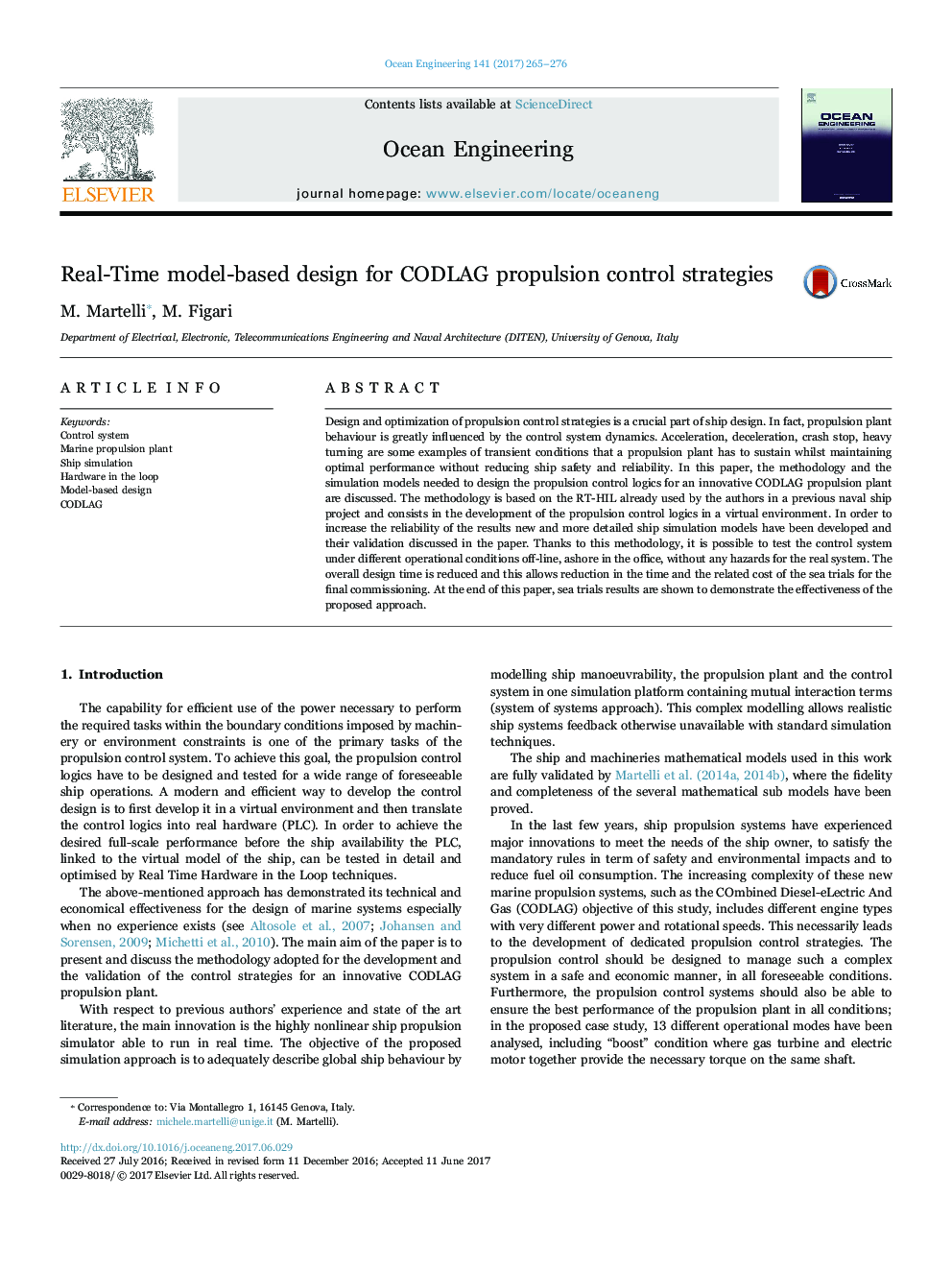| Article ID | Journal | Published Year | Pages | File Type |
|---|---|---|---|---|
| 5474428 | Ocean Engineering | 2017 | 12 Pages |
Abstract
Design and optimization of propulsion control strategies is a crucial part of ship design. In fact, propulsion plant behaviour is greatly influenced by the control system dynamics. Acceleration, deceleration, crash stop, heavy turning are some examples of transient conditions that a propulsion plant has to sustain whilst maintaining optimal performance without reducing ship safety and reliability. In this paper, the methodology and the simulation models needed to design the propulsion control logics for an innovative CODLAG propulsion plant are discussed. The methodology is based on the RT-HIL already used by the authors in a previous naval ship project and consists in the development of the propulsion control logics in a virtual environment. In order to increase the reliability of the results new and more detailed ship simulation models have been developed and their validation discussed in the paper. Thanks to this methodology, it is possible to test the control system under different operational conditions off-line, ashore in the office, without any hazards for the real system. The overall design time is reduced and this allows reduction in the time and the related cost of the sea trials for the final commissioning. At the end of this paper, sea trials results are shown to demonstrate the effectiveness of the proposed approach.
Related Topics
Physical Sciences and Engineering
Engineering
Ocean Engineering
Authors
M. Martelli, M. Figari,
